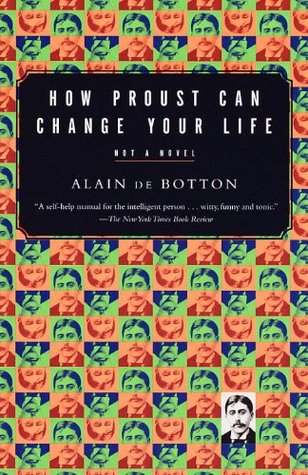More on this book
Community
Kindle Notes & Highlights
Read between
March 15 - May 7, 2020
In reality, every reader is, while he is reading, the reader of his own self. The writer’s work is merely a kind of optical instrument which he offers to the reader to enable him to discern what, without this book, he would perhaps never have experienced in himself. And the recognition by the reader in his own self of what the book says is the proof of its veracity.
“When one is sad, it is lovely to lie in the warmth of one’s bed, and there, with all effort and struggle at an end, even perhaps with one’s head under the blankets, surrender completely to wailing, like branches in the autumn wind.”
Infirmity alone makes us take notice and learn, and enables us to analyse processes which we would otherwise know nothing about. A man who falls straight into bed every night, and ceases to live until the moment when he wakes and rises, will surely never dream of making, not necessarily great discoveries, but even minor observations about sleep. He scarcely knows that he is asleep. A little insomnia is not without its value in making us appreciate sleep, in throwing a ray of light upon that darkness. An unfailing memory is not a very powerful incentive to study the phenomena of memory.
We cannot be taught wisdom, we have to discover it for ourselves by a journey which no one can undertake for us, an effort which no one can spare us.
The moral? To recognize that our best chance of contentment lies in taking up the wisdom offered to us in coded form through our coughs, allergies, social gaffes, and emotional betrayals, and to avoid the ingratitude of those who blame the peas, the bores, the time, and the weather.
Our vanity, our passions, our spirit of imitation, our abstract intelligence, our habits have long been at work, and it is the task of art to undo this work of theirs, making us travel back in the direction from which we have come to the depths where what has really existed lies unknown within us.
Appreciating the beauty of crusty loaves does not preclude our interest in a château, but failing to do so must call into question our overall capacity for appreciation. The gap between what the dissatisfied youth could see in his flat and what Chardin noticed in very similar interiors places the emphasis on a certain way of looking, as opposed to a mere process of acquiring or possessing.
Because of the speed of technological and architectural change, the world is liable to be full of scenes and objects that have not yet been transformed into appropriate images and may therefore make us nostalgic for another, now lost world, which is not inherently more beautiful but might seem so because it has already been widely depicted by those who open our eyes. There is a danger of developing a blanket distaste for modern life, which could have its attractions but lack the all-important images to help us identify them.
Deprivation quickly drives us into a process of appreciation, which is not to say that we have to be deprived in order to appreciate things, but rather that we should learn a lesson from what we naturally do when we lack something, and apply it to conditions where we don’t.
what all books might do for their readers—namely, bring back to life, from the deadness caused by habit and inattention, valuable yet neglected aspects of experience.
There would come a moment with every book when we would feel that something was incongruous, misunderstood, or constraining, and it would give us a responsibility to leave our guide behind and continue our thoughts alone.


